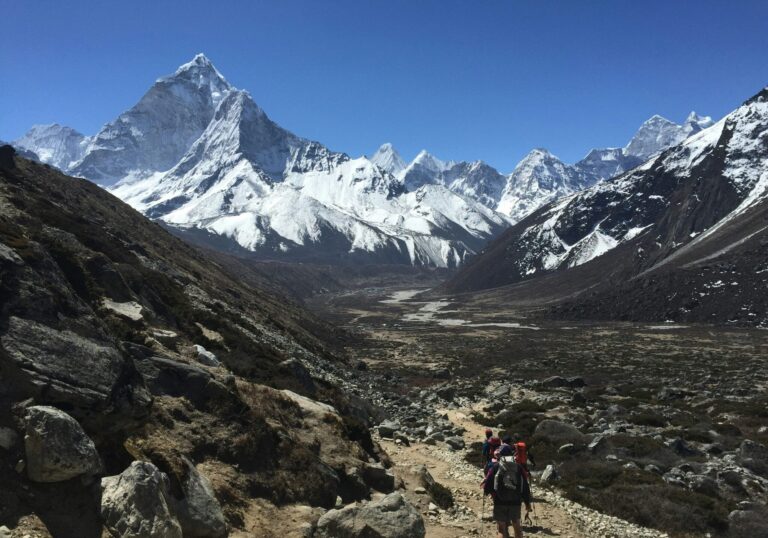Introduction
Tour operators play a crucial role in the travel industry, managing and organizing complex travel arrangements to ensure a smooth experience for their clients. They are the unsung heroes of travel planning, providing personalized service and insider knowledge that turns regular trips into unforgettable adventures.
Key takeaway: Tour operators offer invaluable expertise and connections, making them essential for anyone looking for a stress-free and enriching travel experience.
In this article, you’ll learn:
- The definition and functions of tour operators
- Different types of tour operators
- Benefits of using tour operators
- How they plan and execute tours
- Tips for choosing the right tour operator
- Career opportunities within the industry
For those planning their own adventures, TripSyncer is the perfect tool. From trip planning to live location sharing, real-time updates, and AI-recommended activities, it simplifies every step so you can focus on making memories. Plan with ease—TripSyncer is your ultimate road trip companion!
Understanding Tour Operators
Tour operators are specialized entities that curate and organize travel experiences, distinct from the traditional role of a tour agency. While a tour agency primarily acts as an intermediary selling travel products like flights and accommodations, tour operators take a more comprehensive approach. They craft complete itineraries that encompass transport, lodging, activities, and often meals, offering a seamless travel experience.
Functions of Tour Operators:
- Itinerary Planning: Crafting detailed travel plans tailored to specific interests and preferences.
- Logistics Management: Coordinating transportation, accommodations, and activities.
- Booking Services: Securing reservations for flights, hotels, tours, and events.
- Customer Support: Providing assistance before, during, and after the trip.
Comparison with Travel Agencies
While travel agencies focus on selling pre-existing travel products from various suppliers, tour operators often design bespoke packages themselves. This allows them to offer unique experiences that cater directly to client needs. It also provides them with greater control over the quality of the services provided.
Additionally, tour operators are experts in specific destinations or types of travel, allowing them to provide in-depth knowledge and recommendations for their clients. This level of specialization sets them apart from travel agencies, making them an invaluable resource for travelers seeking a tailored and immersive journey.
Services Offered by Tour Operators
- Customized Tours: Tailored experiences based on client preferences.
- Group Tours: Organized trips for groups with shared interests.
- Special Interest Tours: Focusing on themes like adventure, culture, or gastronomy.
- Luxury Tours: High-end experiences featuring premium services and accommodations.
Keywords such as tour agency, travel tour companies, tour agency near me, best tour companies, and luxury tour operators often lead travelers to discover these specialized services. Unlike generic travel solutions, these operators provide insider knowledge and connections that transform ordinary trips into unforgettable journeys.
Types of Tour Operators
Tour operators come in various forms, each specializing in different aspects of travel to cater to specific markets and preferences. Understanding these types can help you choose the right service for your needs.
1. Inbound Tour Operators
Inbound tour operators focus on organizing trips within a specific country for travelers arriving from abroad. They specialize in showcasing the local attractions, culture, and experiences.
Characteristics:
- Deep understanding of local destinations
- Strong relationships with local suppliers and service providers
- Tailored itineraries showcasing the best of what the country has to offer
Target Market:
- International tourists seeking authentic local experiences
2. Outbound Tour Operators
Outbound tour operators arrange travel from one country to various international destinations. They handle all aspects of international travel, including flight bookings, accommodations, and guided tours.
Characteristics:
- Extensive knowledge of multiple international destinations
- Partnerships with global hotels, airlines, and tour guides
- Comprehensive packages that cover all travel logistics
Target Market:
- Domestic travelers looking to explore foreign countries
3. Domestic Tour Operators
Domestic tour operators cater to travelers within a specific country, offering packages that explore different regions or cities within the same nation. They focus on promoting internal tourism.
Characteristics:
- Expertise in national destinations and regional highlights
- Personalized travel experiences tailored to local preferences
- Coordination with national transport services and accommodations
Target Market:
- Residents exploring their own country
- Families and groups looking for short domestic getaways
Understanding these types of tour operators can assist you in selecting the right provider for your travel aspirations, ensuring a seamless and enriching experience tailored to your preferences.
Benefits of Using Tour Operators
Tour operators offer several distinct advantages for travelers, making your journey seamless and memorable. Their personalized service ensures that every aspect of your trip is tailored to meet your specific needs and preferences.
Key Benefits:
- Insider Knowledge: Tour operators have extensive local knowledge, providing you with access to hidden gems and exclusive experiences that most tourists miss.
- Time-Saving: They handle all the logistics, from booking accommodations to arranging transportation, freeing you up to enjoy your vacation without stress.
- Expertise and Connections: With established relationships with local suppliers and service providers, tour operators can secure better deals and ensure reliability.
- Simplified Travel Experience: By managing all aspects of the trip, they eliminate the hassle of planning, allowing you to immerse yourself fully in the experience.
Tour operators truly are the unsung heroes of travel planning. Their expertise and dedication transform what could be a daunting task into an effortless adventure.
The Role of Tour Operators in Travel Planning
Tour operators meticulously plan and execute tours, focusing on logistics and customer preferences. They handle everything from transportation arrangements to accommodation bookings, ensuring a seamless travel experience. Whether you’re dealing with luxury travel companies or adventure travel companies, the process typically involves:
- Customizing Itineraries: Tailoring trips to match individual interests and preferences.
- Coordinating Logistics: Managing schedules, transportation, and accommodations.
- Booking Activities: Organizing excursions and local experiences.
- Ensuring Safety: Implementing safety protocols and contingency plans.
Local knowledge and relationships are crucial for creating memorable experiences. Tour operators leverage their connections with local guides, hotels, and activity providers to offer insider insights that aren’t readily available online. This local expertise enables them to suggest hidden gems, authentic dining experiences, and exclusive access to attractions.
By fostering strong relationships within the community, tour operators can provide unique opportunities that enhance your trip. Their understanding of cultural nuances and regional specifics ensures that each aspect of your journey is both enriching and authentic.
This deep-rooted local expertise differentiates tour operators from DIY travel planning, offering you a curated experience that’s hard to replicate on your own.
Choosing the Right Tour Operator for Your Needs
Selecting the right tour operator can significantly impact your travel experience. When searching for the best travel companies near me or the best package holiday company, several factors come into play:
1. Reputation and Reviews
One of the most critical aspects to consider is the reputation of the tour operator. Look for online reviews, ratings on platforms like TripAdvisor, and testimonials from previous clients. A well-regarded company will likely provide reliable and high-quality service.
2. Customization Options
Every traveler has unique preferences and interests. It’s essential to find a tour operator that offers customizable packages. This ensures your itinerary aligns with your personal tastes, whether you enjoy adventure activities, cultural experiences, or relaxation.
3. Specialization
Some operators specialize in specific types of tours or destinations. If you have a particular interest, such as wildlife safaris or culinary tours, choosing an operator with expertise in that area can enhance your trip.
4. Transparency and Communication
Clear communication is vital. A good tour operator should be transparent about costs, inclusions, exclusions, and other essential details. They should also be responsive to your inquiries and willing to address any concerns you may have.
5. Local Knowledge
Operators with strong local connections offer valuable insights into the best attractions, hidden gems, and authentic experiences. Their relationships with local suppliers can also lead to better deals and exclusive opportunities.
Considering these factors helps ensure that your chosen tour operator meets your expectations and creates a memorable travel experience.
Careers in Tour Operations: A Behind-the-Scenes Look
Exploring a career in tour operations opens up various exciting opportunities. The industry relies on a diverse range of professionals to ensure seamless travel experiences.
Job Roles within the Industry
- Tour Guides: Responsible for leading groups, providing insightful commentary, and ensuring traveler safety.
- Travel Planners: Specialize in crafting detailed itineraries tailored to client preferences, coordinating logistics such as transportation and accommodations.
- Tour Managers: Oversee entire tour operations, managing budgets, staff, and vendor relationships to guarantee smooth execution of tours.
Skills Required for Success
To excel in these roles, certain skills are crucial:
- Communication: Clear and effective communication with clients and team members is essential.
- Organization: Managing multiple bookings, schedules, and customer preferences requires exceptional organizational abilities.
- Local Knowledge: In-depth understanding of destinations enriches the travel experience, making local knowledge invaluable.
- Problem-Solving: Ability to handle unexpected issues or emergencies calmly and effectively.
Working in tour operations can be highly rewarding. By leveraging your expertise and passion for travel, you can play a pivotal role in creating memorable adventures for travelers around the world.
Conclusion: Trust the Expertise of Tour Operators for Your Next Adventure!
Tour operators are the architects of unforgettable journeys, seamlessly blending logistics and local expertise to create exceptional travel experiences. By tapping into their knowledge, you unlock personalized adventures where every detail is thoughtfully planned. With their services, you can fully immerse yourself in the excitement of exploration while leaving the complex planning to the experts.
Tour Operators: The true heroes behind flawless travel experiences—bringing your travel dreams to life. For your next adventure, consider the difference a tour operator can make. For instance, Sandy Ferguson’s reviews highlight how a skilled tour operator can transform your travel experience.
Ready to streamline your travel planning? Download TripSyncer from the Apple Store or Google Play Store to effortlessly organize your trips and experience a smooth, memorable journey from start to finish. Let TripSyncer be your trusted travel companion!
Frequently Asked Questions (FAQs)
1. What is a tour operator?
A tour operator is a professional or company that plans, arranges, and organizes travel packages, including accommodations, transportation, and various activities for travelers.
2. How do tour operators differ from travel agencies?
Tour operators create and offer travel packages that include multiple services like lodging, transport, and activities. Travel agencies primarily act as intermediaries to book these packages or individual travel services.
3. What types of tour operators are there?
- Inbound Tour Operators: Specialize in providing tours to travelers arriving in their own country.
- Outbound Tour Operators: Organize tours for residents traveling to other countries.
- Domestic Tour Operators: Focus on arranging tours within their own country.
4. What services do tour operators offer?
Tour operators provide a wide range of services including trip planning, itinerary creation, booking accommodations, arranging transportation, organizing guided tours, and offering customer support during the trip.
5. What are the benefits of using a tour operator?
Key benefits include expert knowledge in travel planning, access to exclusive deals and experiences, personalized itineraries, time savings, and assistance with unexpected issues or emergencies.
6. How can I choose the right tour operator for my needs?
Consider factors such as:
- Reputation and reviews
- Customization options
- Specialization in certain types of travel
- Transparency and communication
- Local knowledge
7. What job roles exist within the tour operations industry?
Job roles include travel consultant, itinerary planner, customer service representative, operations manager, and marketing coordinator.
8. What skills are required to succeed in tour operations?
Important skills include excellent communication abilities, strong organizational skills, attention to detail, problem-solving aptitude, and a passion for travel.
9. Why should I trust a tour operator with my travel plans?
Tour operators have the expertise to handle complex logistics and local details expertly. They help create personalized adventures that allow you to focus on enjoying your trip rather than worrying about the planning process.
10. Can using a tour operator save me money?
Yes, due to their industry connections and experience in negotiating deals with suppliers, tour operators can often secure better rates than individual travelers can on their own.











